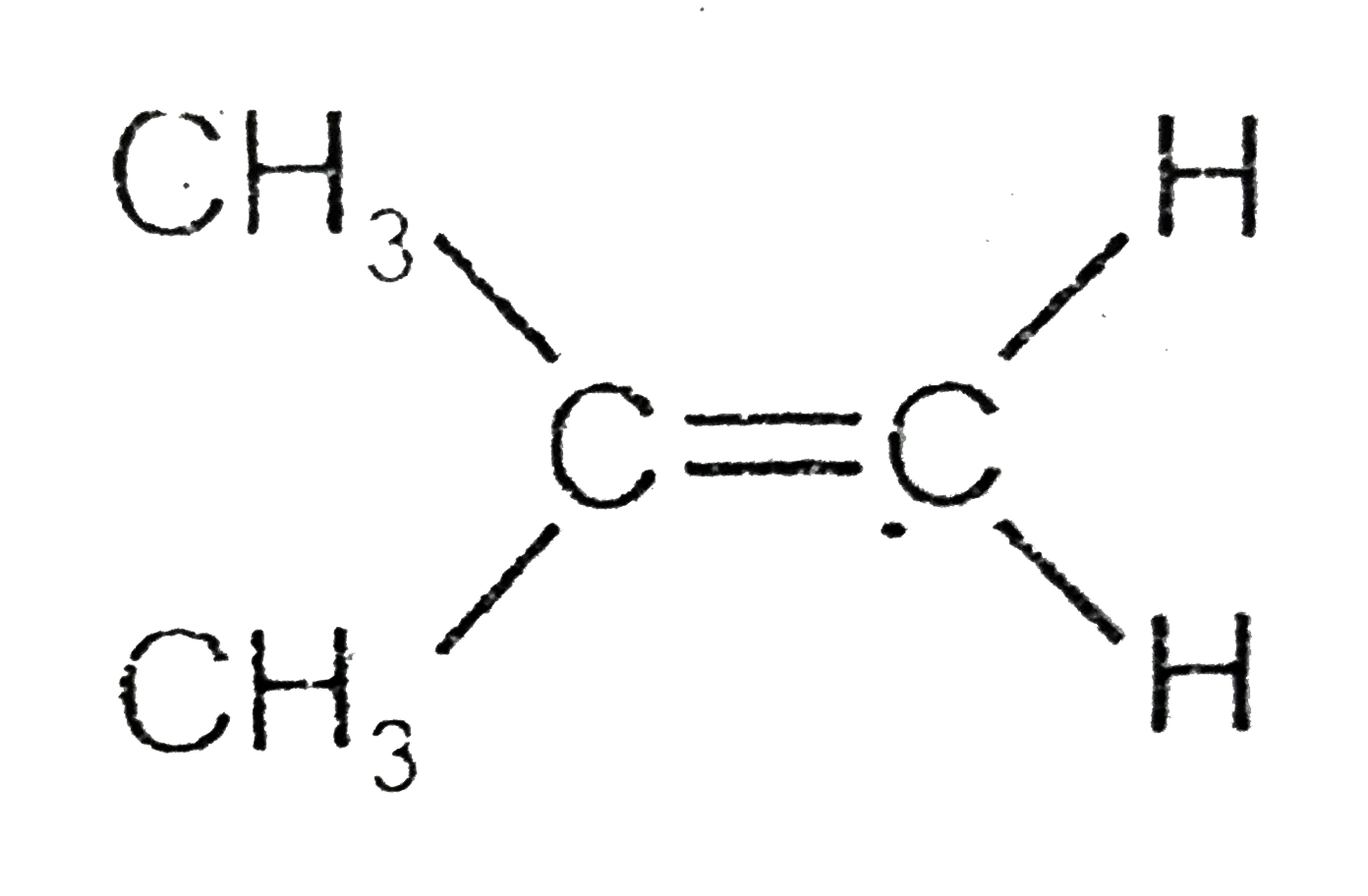The Markovnikov rule is best applicable to the reaction between
C2H4+HCl
C3H6+Br2
C3H6+HBr
C3H3+Cl2
The correct Answer is:C
Markownikoff’s rule states that addition of halides to unsymmetrical alkenes takes place in such a manner that the negative part of the adduct attaches itself to that carbon atom which contains lesser number of hydrogen atoms
Here C3H6(CH3−CH=CH2) is an unsymmetrical alkene and the ragent is HBr. hence Markownikoff.s rule is best applicable for this reaction.
Topper's Solved these Questions
- HYDROCARBONSBook:ERRORLESSChapter:HYDROCARBONSExercise:NCERT BASED QUESTION (ALKYNE)
Explore 67 Videos
- HYDROCARBONSBook:ERRORLESSChapter:HYDROCARBONSExercise:NCERT BASED QUESTION (AROMATIC HYDROCARBON)
Explore 78 Videos
- HYDROCARBONSBook:ERRORLESSChapter:HYDROCARBONSExercise:ASSERTION & REASON
Explore 18 Videos
- GENERAL ORGANIC CHEMISTRY Book:ERRORLESSChapter:GENERAL ORGANIC CHEMISTRY Exercise:ASSERTION AND REASON
Explore 14 Videos
- HYDROGENBook:ERRORLESSChapter:HYDROGENExercise:ASSERTION & REASON
Explore 6 Videos
Similar Questions
What is Markovnikov's rule ?
View SolutionThe alkenes have π-bonds which make them highly reactive. These undergo electrophilic addition reactions, Addition of HX to unsymmetrical alkenes gives two products and follow Markovnikov rule and anti- Markovnikov rule. The addition occure through the formation of carbocation in Markovnikov rule and free radicals in anti-Markovnikov zule. The ozonolysis reaction of alkenes helps to locate the position of double bond.
Name the products formed when 2-methylpropene is treated with ozone followed by Zn,H2O.
View Solution
Knowledge Check
Markownikoff rule is best applicable to
AC2H4+HClBC3H6+Br2CC3H6+HBrDC3H6+Cl2Markovnikov rule is applicable to
ACH2=CH2BCH3−CH2−CH3CCH3−CH=CH−CH3D
Hund's rule is applicable for:
A3px,3py,3pzB3s, 3p, 3dC6s, 5p, 4dDAll of the above
Use markownikov's rule and predict the products of the following reaction:
(i). HCl with CH3CCl=CH2
(ii). HCl with CH3CH=C(CH3)2.
View SolutionChargaff's rule is applicable to :
View SolutionMarkovnikov's rule governs the addition of
View SolutionMarkovnikov's rule is empirical but may be explained theoretically on the basis that the addition occurs by a
View SolutionIn which (n+l) rules not applicable:
View Solution
